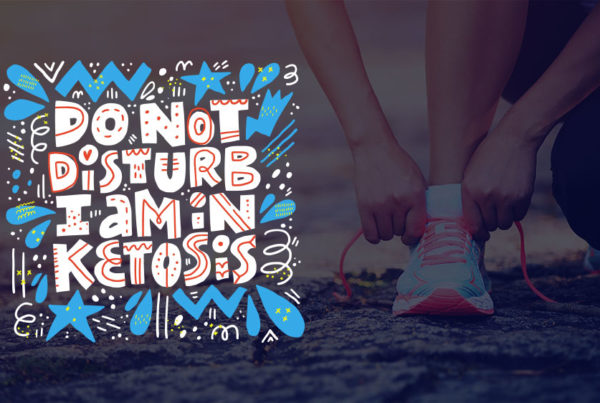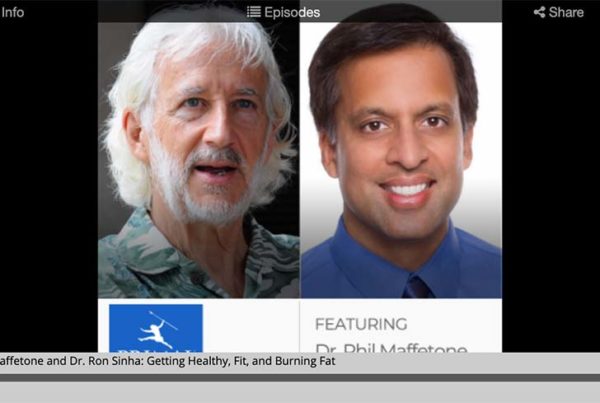Even if you think you’re avoiding it you may not be. Sugar could be finding its way into the food you are eating. This happens during travel, in restaurants, buying packaged items, those holiday dinners, or if you don’t make all your meals from real food. After more than a hundred years of sugar deception by the industry, three things have come into focus. A small number of companies have become huge conglomerates, regularly reaping billions of dollars in profit by selling sugar. Second, billions of sugar consumers worldwide have become sick and fat, including young children. And, the problem continues to worsen.
In discussing sugar, I include other processed carbohydrates too because they convert to sugar very quickly in the body after consumption. This includes flour and other refined carbohydrates found in breads, crackers, cereals, bagels, muffins and other items, not to mention sweets—let’s just call it all “sugar.” It’s impossible to say, but probably 99 percent of the sugar consumed is the refined, unhealthy version— the stuff that maims and kills. Unfortunately, for most Paleolithic people today it is a global food staple.
Governments have jumped on board the sugar bandwagon, long ago, encouraging citizens to eat more of these unhealthy foods. It’s not just a problem in affluent societies. In the course of only one generation, many millions of third world people have gone from starvation to obesity through the consumption of sugar (the World Health Organization calls it the “nutrition transition”).
Clearly there are many health and fitness problems that result from the consumption of sugar. Here are some of them:
- Illnesses such as obesity, diabetes, cancer, Alzheimer’s, stroke, high blood pressure, and heart disease.
- Chronic inflammation, a key part of injuries and other physical disabilities ranging from arthritis and bursitis to muscle, ligament, tendon and bone disorders. Even hair loss.
- Fatigue and depression.
- Increased body fat.
- Poor oral health, including cavities, tooth loss and gum problems.
- Lower quality of life—often part of the aging process, but the brains of young people are adversely affected by the regular consumption of sugar.
Abnormal sugar regulation can occur in those without diabetes or other diseases. Even in active people, including competitive and professional athletes, higher levels of body fat are becoming common. Despite expending a lot of calories in training, too many of these calories burned during a workout are in the form of sugar and not fat. This occurs because eating sugar affects metabolism, forcing the body to use much more glucose, and too little fat, for energy. The result is less energy for endurance performance. Because less fat is used for energy, it’s stored throughout the body in hopes it will be used some day.
Poor performance is often associated with sugar consumption. Whether you are a runner trying for a better race time, a golfer seeking lower scores, an executive or student wanting more brainpower, a pilot, machine operator or commuter who cannot afford to make an error, reduced performance is associated with sugar consumption. (Probably many more auto accidents come from this than alcohol.)
The most common symptoms of excess sugar intake include sleepiness and loss of concentration, especially after meals. That’s because blood sugar is reduced by insulin, depriving the brain of its constant need for glucose. Another complaint by those eating too much sugar is intestinal gas, often due to the inability of the body to effectively digest many kinds of sugar.
Sugar in Disguise
The myth of “whole grain” continues to lure millions of people into thinking they’re eating well when, in fact, they are just consuming sugar. The same untruth is commonly told about sugar being necessary for energy. The fact is there is no nutritional requirement for sugar, including carbohydrates.
Agriculture scientists have made genetic changes to sweeten many of our natural foods, causing them to contain harmful sugar. These include potatoes, corn, watermelon and pineapple. It is just as if you scooped up the white stuff with a spoon and ate it for dinner or a snack.
So even if you think you’re not eating much sugar, think again: whether in a gas station store or Whole Foods, almost all bread, cereal, rolls, muffins, pasta, noodles, bagels, rice cakes, and foods made with refined flours are just sugar. Not to mention the junk food products with higher amounts of sugar such as cakes, cookies, candies, pies, and similar items sold in these same stores.
Of course, many liquid refreshments can cause even more harm because they are usually highly concentrated—especially colas and juice drinks. Likewise for so-called sports products (most are consumed by non-athletes), which are usually full of sugar. These include Gatorade and the many related beverages, carbohydrate replacement products, energy bars and others. For athletes, just consuming these products during competition won’t magically improve performance—instead, training the body to be a better fat-burner is the first step, then finding a healthy source of carbohydrate for competition can help maintain speed and endurance.
In addition to table sugar, called sucrose, many other names for different versions of the same harmful food are common. Here are some of them:
- Beet sugar
- Corn sugar, high-fructose corn syrup
- Rice syrup
- Maltose, malt sugar/syrup, maltodextrin
- Dextrose, glucose
- Fruit juice concentrate
- Grape sugar
- Invert sugar
- Molasses
- Raw sugar
- Cane sugar
- Sorghum syrup
- Turbinado sugar
If you read ingredient lists you’ll find sugars listed everywhere; from ketchup and mayonnaise to cold cuts and fish products. There is even a separate listing for “sugar” under the “carbohydrate” heading on nutrition labels. Most, although not all, of these sugars are the added variety.
And don’t be fooled into thinking that certified organic sugar is any better for you—it’s not. This is just part of the deception.
Sugar is also hidden in many packaged, frozen, canned and otherwise processed food, sometimes not listed on the label. The ongoing name game with labeling is meant to deceive consumers, with food lobbyists petitioning governmental regulation so the products don’t look so bad. It was not long ago, for example, that the only ingredient in peanut butter was listed as peanuts. But a sizable amount of sugar was added too. That particular loophole has been closed, but we usually only hear about these types of tricks after the fact, so beware of any packaged or prepared item. The same is true in most restaurants—fast foods are especially full of it, but most food services use sugar as a cooking ingredient.
If sugar, in any of its many forms, is a part of your diet—whether it is the majority or just smaller amounts—you will only be healthier and become more fit without it.
Another problem with sugar is that the bad foods containing it are taking the place of healthy items in our diet. Instead of fluffy, nutrient-poor unhealthy processed foods, replace them with the real thing, especially fresh fruits and vegetables, raw almonds and cashews, the best protein choices (including eggs, meats, and fish), and other foods as tolerated such as cheese and other fermented dairy, beans, and lentils.
If it would make the world a better place, why can’t we just stop eating sugar? This is easier said than done for the millions of people who are hooked on the white stuff. There is even a so-called war on sugar in some local governments who want to keep sugar out of schools or reduce the amount of sugar in single serving items. It is certainly something to applaud. But like big tobacco, the sugar industry has a more powerful and secret weapon—addiction.
Many people encounter great difficulty giving up sugar in all its forms. Foods don’t taste the same without sugar, they say. And because sugar is such a widely used ingredient, finding out which foods don’t contain it can sometimes be a nutritional challenge.
Of all the patients I’ve treated for serious illness, all the fitness problems encountered in a wide variety of athletes, coach potatoes and everyone in between, the single recommendation that helped more people the most—probably more than all other therapies combined—has been the elimination of sugar. In fact, this seemingly simple, single recommendation can dramatically improve your health, reduce body fat, and increase performance literally overnight. Eliminate sugar today and you can be significantly better tomorrow.
Does this mean no more desserts or enjoyable food? Certainly not! While I avoid all processed food, I do eat a healthy, homemade dessert daily, sweetened with small amounts of natural honey or fruit. Honey is a lower glycemic food, tolerated well by healthy people and most of those transitioning from sugar addiction to a healthier lifestyle. My website contains a recipe section with many healthy desserts (see below).
It is our choice to be healthy or not, to perform well or poorly, to reach our human potential or continue to struggle, to be injured and in pain or live life to the fullest—or, to finally shed the unwanted body fat.








